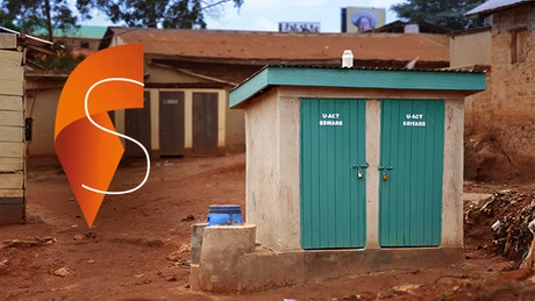Planning & Design of Sanitation Systems and Technologies free videos and free material uploaded by École Polytechnique Fédérale de Lausanne Staff .
Introduction to sanitation planning & systems approach
To get started, you will get an overview of why sanitation is important for human health and environmental protection, especially in urban areas. Then, you will learn about what an Enabling Environment is and why it is important. Towards the end of the first week, you will get a taste of some state-of-the-art environmental sanitation planning approaches (Sanitation 21, CLUES, CLTS) that are currently being used in international development work.
Sanitation systems & technologies
After getting to know different sanitation planning frameworks in the first part of this week, you will learn about the key terminology and concepts used in the systems approach to environmental sanitation. We will also explore why systems thinking is crucial for urban environmental sanitation.
Sanitation systems & technologies
During week 3, you will dive more deeply into the technical aspects of different sanitation systems, from the simple single pit system to more complex centralised treatment systems. We introduce you to the main treatment processes in detail, highlighting advantages and disadvantages of each.
Urban sanitation solutions - Case studies
In this week, you will see much of the theory of the last weeks be put to the test. Here, we present you with case studies from Africa and Asia in which different sanitation solutions from neighbourhood to national scale are trialled or already fully established. Do you already feel familiar with all of them? Watch this week’s video collection to find out!
Urban sanitation tools
In this last week of the course, we focus on the urban realm. You will become familiar with various urban sanitation tools, such as excreta flow diagrams (SFD’s) and sanitation safety planning, and with overarching themes of urban sanitation, such as the role of gender in sanitation planning, and behaviour change in urban sanitation.
Do you want to learn how to plan affordable and context-specific sanitation solutions? Be up-to-date on the newest developments in urban sanitation planning and programming? Get to know best practice examples of urban sanitation systems in low- and middle-income countries? If yes, this course is for you!
This course provides you with an introduction to integrated sanitation planning, both on a citywide scale and for specific contexts such as informal settlements. You will become familiar with different sanitation planning frameworks as well as different systems and technologies relevant along the sanitation value chain. You will learn why systems’ thinking is crucial for urban environmental sanitation, and how to apply key terminology and important concepts.
INSTRUCTION Eawag-Sandec and EPFL jointly offer this course with support from sanitation experts of the World Bank and WHO.
LANGUAGES We simultaneously offer this course in English and French. The name of the French course is « Planification & Design des Systèmes et Technologies d’Assainissement ».
MOOC SERIES This course is one of four in the series “Sanitation, Water and Solid Waste for Development".

- 0 Reviews
- 0 Students
- 57 Courses

Write a public review